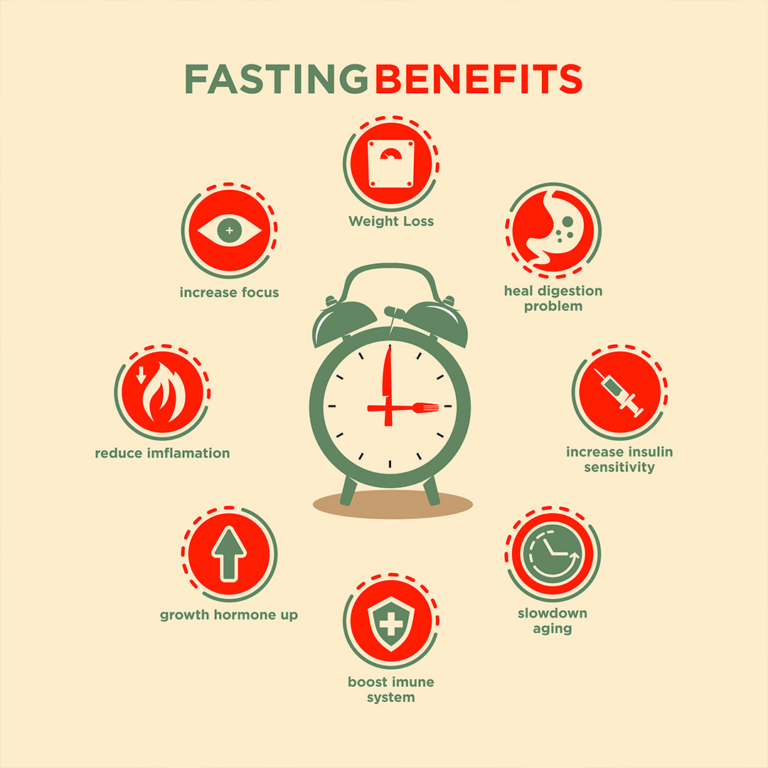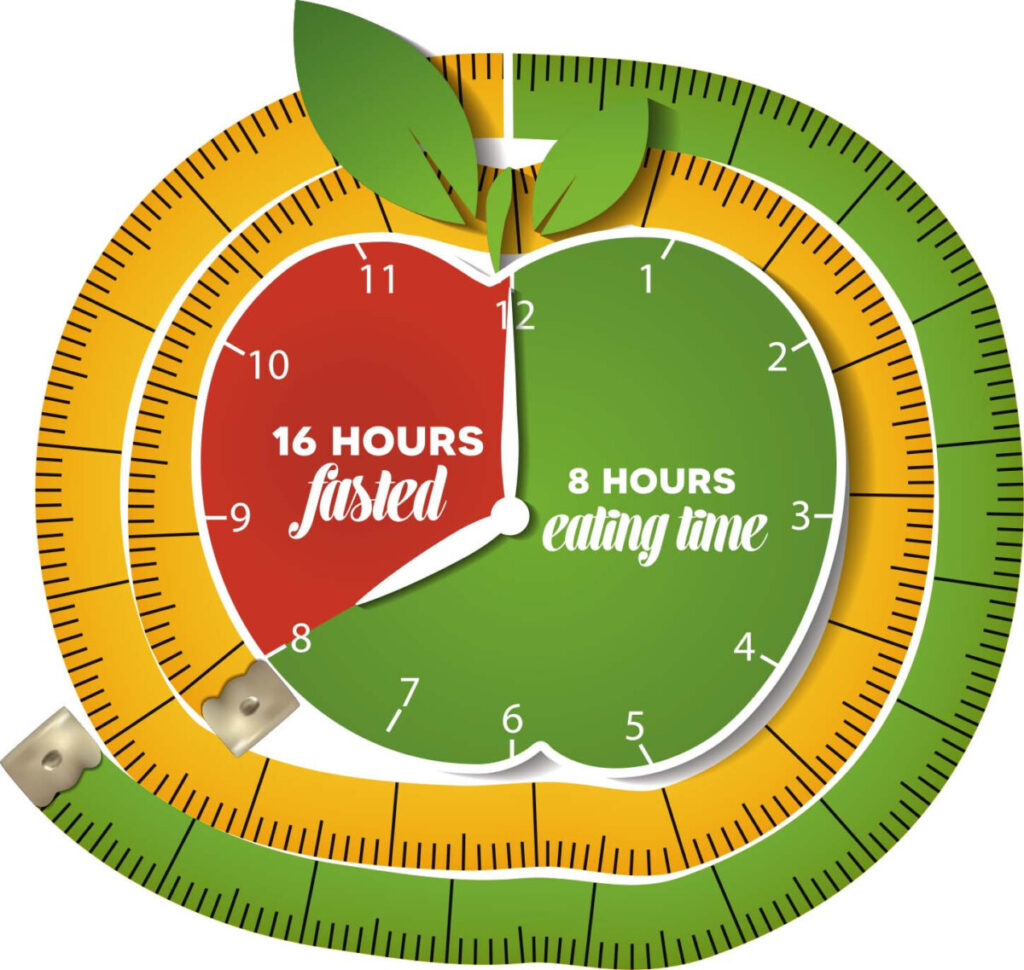Intermittent fasting – let’s look at this recently popular tool in the modern world. They talk a lot about it and it is recommended by nutritionists and fitness coaches primarily for weight loss and fat loss.
The idea of intermittent fasting has been around for centuries. It can be traced in various cultures and religions. For example, in Ancient Egypt, priests practiced fasting for several days before religious ceremonies. And in ancient Greece, philosophers such as Socrates and Plato fasted to purify the mind and body.
In recent years, there have been many scientific studies confirming the health benefits of intermittent fasting. These studies have shown that it may be effective for:
- Weight loss and fat loss
- Improves glucose metabolism and insulin sensitivity
- Reducing LDL cholesterol and triglycerides
- Improving cognitive functions and memory
- Reduce inflammation
There are several options for intermittent fasting. The basic principle is that the 24 hours of the day are divided into two windows – the time when we eat and the time when we abstain from eating. There are many different variations – 36:0, 24:0, 20:4 (warrior diet), 14:10, 12:12, but perhaps the most popular is 16:8 – that is, 8 hours for eating, 16 hours without food.

In general, usually every day each of us uses intermittent fasting 12:12 – we eat for 12 hours, we fast for 12 hours.
During the fasting period, it is allowed to drink drinks that do not affect the functioning of the digestive organs – that is, unsweetened tea, coffee, herbal drinks, water. Some methods allow the use of bone broth during a period without food (for example, the method of Jason Fang, he has many different books).
An important part of “healthy intermittent fasting” is not starving!
And the body can do this only when it has enough resources – that is, enough of all the building materials – proteins, fats, micronutrients. It turns out that only in a situation where during the eating window the body has received all the necessary nutrients, as well as calories, will the body calmly accept a hunger strike (the so-called “positive stress”).
Fasting is not for everyone
For example, one study found that fasting improved insulin sensitivity in men, while women’s blood sugar levels worsened. Also, if you are a woman who is faced with the task of becoming pregnant and giving birth to a baby, it is better to hold off on the practice of fasting.
Fasting is not recommended for those who are often sick or for growing bodies that need a constant supply of sufficient nutrients.
In case of eating disorders – anorexia, bulimia, compulsive overeating, etc., fasting can aggravate the condition.
Intermittent fasting is not recommended for people with:
- Emaciation or malnutrition
- Type 1 diabetes
- Severe kidney or liver disease
- Heart failure
- Eating disorders
- Taking certain medications such as insulin or anticoagulants
Intermittent fasting is not a sustainable way to lose weight. As soon as a person stops fasting, the weight quickly returns. This is because intermittent fasting slows down your metabolism, making it harder to burn calories. That is,
To feel and look good, do not forget about the principles of physiology inherent in the human body:
- Have breakfast in the morning (important, since in the morning the highest level of the hormone cortisol, which can destroy muscle mass)
- Eat at least three times a day (this is the only way to give the body the required amount of protein)
Monitor the calorie content of foods in your diet:
- for men, the daily norm is 2,200-3,500 kcal;
- for women – 1,600-2,900 kcal.
It is important to first improve your diet, make it varied, nutritious, and nutritious.
Intermittent fasting and bariatric medicine
Intermittent fasting is an eating pattern that involves periods during which a person abstains from food in order to lose weight. There is still not enough data on how the scheme affects the body as a whole in the long term. The safety of eating at serious intervals confirmed by researchers only for the average healthy person. The risks “in the moment” are known:
- long breaks lead to the fact that a person does not feel full for a long time while eating, so he risks eating 2-3 times more than his norm in terms of volume and calorie content;
- Fasting is dangerous for pregnant and lactating women. In our experience, there are risks of dyspeptic disorders in people with gastrointestinal diseases, exacerbations of cholelithiasis, ulcers.
The proportion of Russians who are obese is growing rapidly – already every tenth person is overweight, which means the number of complications is also increasing – diabetes, cardiovascular pathologies, etc. Bariatric surgery is developing and gaining popularity. This is an effective treatment method, the indication for which is not only obesity, but also concomitant diseases and complications. In 2020, 3,292 operations were performed, and in 2023 there were already 8,955—172% more. There are even quotas for interventions, for example, for people with diabetes. The Nationwide Bariatric Registry reports that only 30% of obese people do not have additional diagnoses. But bariatric surgery may also be indicated for them if the BMI (body mass index) is above 40.
There are no direct contraindications to intermittent fasting in bariatric patients. This method is chosen by patients to enhance weight loss after surgery. But due to the dangers of exacerbations of chronic diseases, it is extremely important to increase control over the intake of medications at this time; laboratory tests must be regularly carried out to prevent deficiencies of microelements and vitamins and, in general, the process must be monitored by a doctor.







